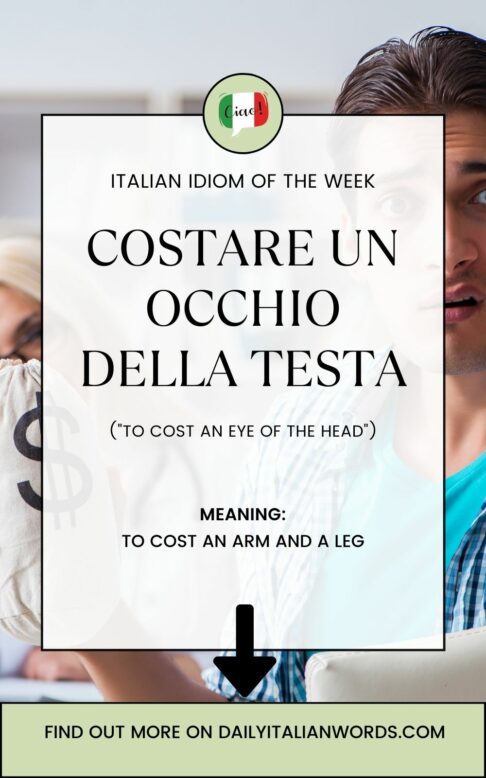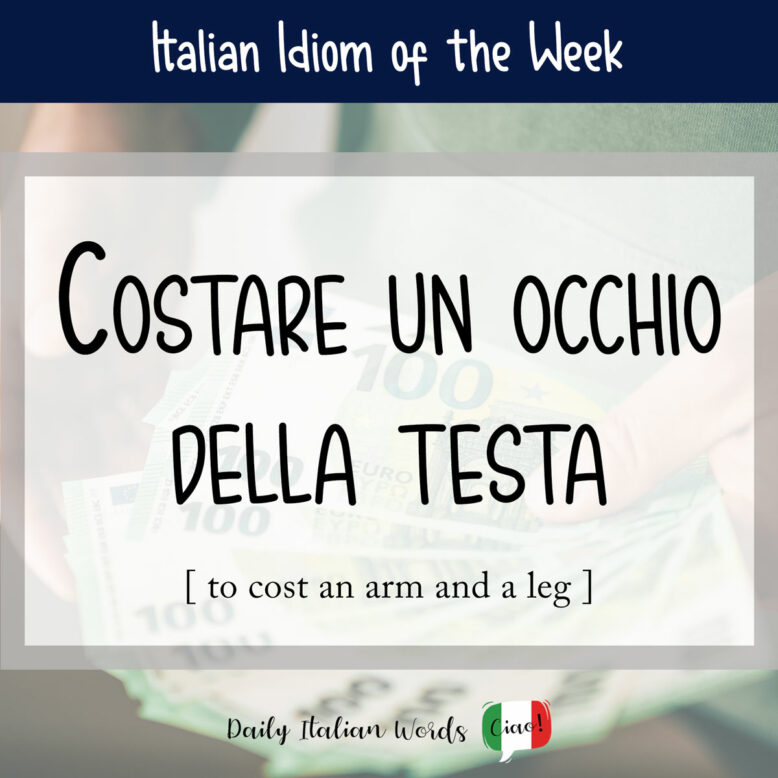The saying costare un occhio della testa (literally “to cost an eye of the head”) in Italian is used to refer to something that costs a lot of money. It draws a comparison between the irrecoverable and painful loss of an eye to the loss of a large monetary sum.
Costare un occhio della testa
To cost an arm and a leg

In English, we have a similar expression that involves, not eyes, but limbs: to cost an arm and a leg.
Il corso universitario mi è costato un occhio della testa!
The university course cost me an arm and a leg!
According to La Repubblica, the Spanish conquistador, Diego de Almagro, coined the phrase after being struck by an arrow and losing an eye during his exploration of Peru in the 16th century. It appears he then remarked that his endeavour to defend the interests of the Crown had “cost him an eye from his head” (in Spanish, costar un ojo de la cara).

In the place of costare (to cost), you can also use other money-related verbs such as spendere (to spend) or pagare (to pay). In this case, the best translation is “to splurge”.
Ho speso un occhio della testa per questa nuova borsa ma mi piace tantissimo.
I splurged on this new bag but I love it.

Heather Broster is a graduate with honours in linguistics from the University of Western Ontario. She is an aspiring polyglot, proficient in English and Italian, as well as Japanese, Welsh, and French to varying degrees of fluency. Originally from Toronto, Heather has resided in various countries, notably Italy for a period of six years. Her primary focus lies in the fields of language acquisition, education, and bilingual instruction.


